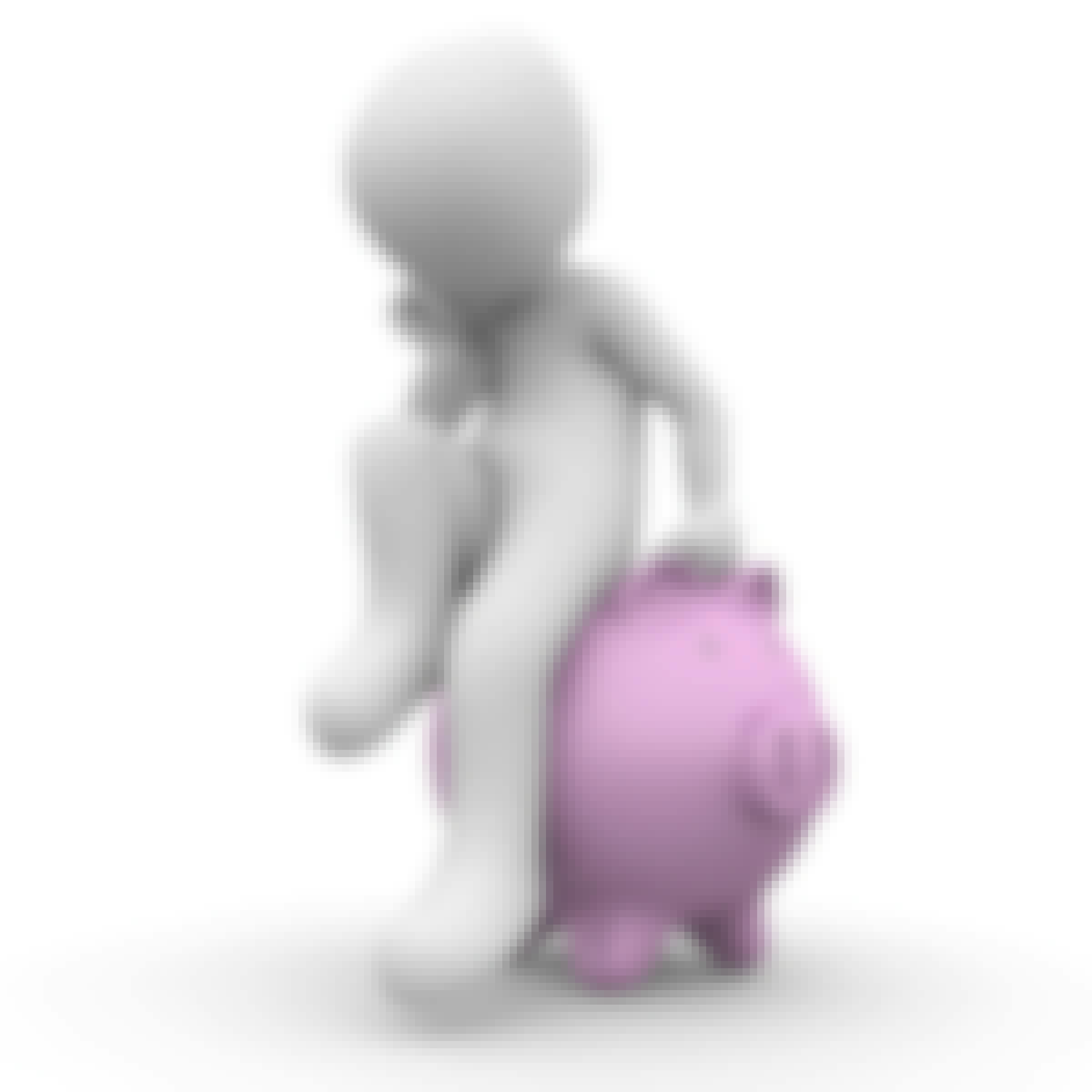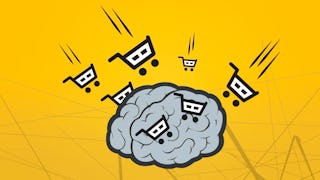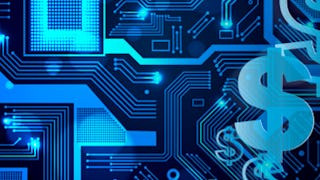- Browse
- Behavioral Economics
Behavioral Economics Courses Online
Explore behavioral economics to understand how psychological factors influence economic decisions. Learn about biases, heuristics, and consumer behavior.
Filter by
SubjectRequired *
LanguageRequired *
The language used throughout the course, in both instruction and assessments.
Learning ProductRequired *
LevelRequired *
DurationRequired *
SkillsRequired *
SubtitlesRequired *
EducatorRequired *
Explore the Behavioral Economics Course Catalog
 Status: PreviewPreviewD
Status: PreviewPreviewDDuke University
Skills you'll gain: Behavioral Economics, Decision Making, Financial Planning, Finance, Consumer Behaviour, Financial Market, Financial Analysis, Economics, Psychology, Probability & Statistics, Risk Analysis
4.4·Rating, 4.4 out of 5 stars4.5K reviewsBeginner · Course · 1 - 4 Weeks
 Status: PreviewPreviewY
Status: PreviewPreviewYYale University
Skills you'll gain: Behavioral Economics, Storytelling, Data Storytelling, Economics, Economic Development, Financial Forecasting, Forecasting, Socioeconomics, Social Studies, Consumer Behaviour, Analysis, Complex Problem Solving
4.8·Rating, 4.8 out of 5 stars857 reviewsBeginner · Course · 1 - 4 Weeks
 Status: NewNew
Status: NewNewSkills you'll gain: Decision Making, Driving engagement, Behavioral Economics, Human Factors, UI/UX Strategy, User Experience, Persona (User Experience), User Centered Design, User Experience Design, Usability Testing, Psychology, Experimentation, Design Strategies, Trustworthiness, Motivational Skills, Social Skills, Behavioral Management, Product Management, Ethical Standards And Conduct, Digital Marketing
Beginner · Course · 1 - 3 Months
 Status: PreviewPreviewC
Status: PreviewPreviewCCopenhagen Business School
Skills you'll gain: Consumer Behaviour, Behavioral Economics, Decision Making, Human Learning, Customer Insights, Market Research, Business Ethics, Marketing, Advertising, Ethical Standards And Conduct, Psychology, Magnetic Resonance Imaging
4.7·Rating, 4.7 out of 5 stars3.5K reviewsBeginner · Course · 1 - 3 Months
 Status: PreviewPreviewS
Status: PreviewPreviewSStanford University
Skills you'll gain: Game Theory, Strategic Decision-Making, Mathematical Modeling, Graph Theory, Bayesian Statistics, Behavioral Economics, Probability, Economics, Problem Solving, Algorithms
4.6·Rating, 4.6 out of 5 stars4.9K reviewsBeginner · Course · 1 - 3 Months
 Status: PreviewPreviewU
Status: PreviewPreviewUUniversity of Virginia
Skills you'll gain: Agentic systems, Economics, Artificial Intelligence, Economic Development, Behavioral Economics, Responsible AI, Automation, Labor Relations, Emerging Technologies, Market Dynamics, Policy Analysis, Innovation
4.7·Rating, 4.7 out of 5 stars60 reviewsAdvanced · Course · 1 - 3 Months
What brings you to Coursera today?
 Status: Free TrialFree TrialJ
Status: Free TrialFree TrialJJohns Hopkins University
Skills you'll gain: Marketing Psychology, Influencing, Case Studies, Persuasive Communication, Advertising, Consumer Behaviour, Decision Making, Marketing Effectiveness, Neurology, Behavioral Economics, Marketing, Psychology, Anatomy, Physiology
4.7·Rating, 4.7 out of 5 stars29 reviewsIntermediate · Course · 1 - 3 Months
 Status: PreviewPreviewY
Status: PreviewPreviewYYale University
Skills you'll gain: Investment Banking, Risk Management, Financial Market, Financial Regulation, Financial Services, Finance, Business Risk Management, Securities (Finance), Capital Markets, Behavioral Economics, Banking, Corporate Finance, Governance, Insurance, Underwriting, Derivatives, Market Dynamics, Mortgage Loans
4.8·Rating, 4.8 out of 5 stars32K reviewsBeginner · Course · 1 - 3 Months
 Status: Free TrialFree TrialI
Status: Free TrialFree TrialIIE Business School
Skills you'll gain: Financial Policy, International Finance, Public Policies, Economics, Economic Development, Economics, Policy, and Social Studies, Business Economics, Market Opportunities, International Relations, Tax, Global Marketing, Financial Trading, Policy Analysis, Socioeconomics, Demography, Business Risk Management, Crisis Management, Fiscal Management, World History, Supply And Demand
4.8·Rating, 4.8 out of 5 stars1.4K reviewsIntermediate · Specialization · 3 - 6 Months
 Status: Free TrialFree TrialU
Status: Free TrialFree TrialUUniversity of Illinois Urbana-Champaign
Skills you'll gain: Supply And Demand, Economics, Market Dynamics, Business Economics, Policy Analysis, Behavioral Economics, Business Operations, Price Negotiation, Socioeconomics, Consumer Behaviour, Economics, Policy, and Social Studies, Business Strategy, Public Policies, Competitive Analysis, Resource Allocation, Decision Making, Market Analysis, Cost Benefit Analysis, Environmental Issue, Critical Thinking
4.8·Rating, 4.8 out of 5 stars3.3K reviewsBeginner · Specialization · 1 - 3 Months
 Status: Free TrialFree TrialJ
Status: Free TrialFree TrialJJohns Hopkins University
Skills you'll gain: Research Design, Science and Research, Laboratory Research, Research Methodologies, Research, Consumer Behaviour, Influencing, Marketing Psychology, Case Studies, Persuasive Communication, Statistical Analysis, Ethical Standards And Conduct, Data Analysis, Data Collection, Advertising, Behavioral Economics, Biomedical Technology, Experimentation, Neurology, Decision Making
4.7·Rating, 4.7 out of 5 stars29 reviewsIntermediate · Specialization · 3 - 6 Months
 Status: Free TrialFree TrialR
Status: Free TrialFree TrialRRice University
Skills you'll gain: Economics, Supply And Demand, Business Economics, Market Dynamics, Economic Development, Game Theory, Financial Policy, Tax, Market Analysis, International Relations, Operating Cost, Cost Benefit Analysis, Business Metrics, Public Policies, Performance Metric, International Finance, Fiscal Management, Consumer Behaviour, Investments, Labor Relations
4.8·Rating, 4.8 out of 5 stars134 reviewsBeginner · Specialization · 3 - 6 Months
Behavioral Economics learners also search
In summary, here are 10 of our most popular behavioral economics courses
- Behavioral Finance: Duke University
- Narrative Economics: Yale University
- Engaged: Behavioral Science for Digital Product Design: Packt
- An Introduction to Consumer Neuroscience & Neuromarketing : Copenhagen Business School
- Game Theory: Stanford University
- The Economics of AI: University of Virginia
- Foundations of Neuroscience: Johns Hopkins University
- Financial Markets: Yale University
- Globalization, Economic Growth and Stability: IE Business School
- Microeconomics Principles: University of Illinois Urbana-Champaign
Frequently Asked Questions about Behavioral Economics
Richard Thaler, the Nobel Prize-winning economist who is considered the founder of this influential field, defined behavioral economics as “the combination of psychology and economics that investigates what happens in markets in which some of the agents display human limitations and complications.” Whereas traditional economics (known as the “standard economic model”) assumes that people are rational actors whose decision-making in the market is based purely on calculations of costs and benefits in pursuing one’s preferences, behavioral economics identifies important ways that this theory is challenged in reality by cognitive biases.
For example, individuals often lack the willpower to make choices in their long-run interest, even if they rationally understand the costs. People also often make altruistic sacrifices to help others, in contrast to purely rational actors that pursue only self-interest. These types of insights from psychology have been deepened in recent years by bringing in advances in our understanding of how the biology of the brain works, creating the closely related subfield of neuroeconomics.
These insights may seem like common sense, but they have important implications for business. Behavioral finance has helped explain how the stock market is influenced by biases such as “loss aversion,” which leads investors to fear losing money more than they value gains. Consumer neuroscience has yielded marketing insights on how memorable branding builds associations in the brain that impact purchasing decisions.
Behavioral economics and related fields can seem to some like an effort to “hack” the human mind for financial gain, particularly when used in marketing. However, leading theorists in this field such as Thaler have demonstrated that this experimental, science-based approach to economics can also help policymakers come up with policy interventions to “nudge” people towards making better long-term decisions such as eating healthier food and saving more of their money.
A background in behavioral economics can give you an edge in many types of business and marketing careers, as it helps deepen your understanding of the biases that influence the choices of other investors and consumers - as well as your own economic decision-making. This field is also useful for public policy careers, as accounting for the real-world insights of behavioral economics in policymaking can help make legislation and regulation more effective in achieving its goals.
If you want to dive deeper into this influential field and contribute to its fast-growing body of research, you can become an economist yourself. This career path typically requires an advanced degree such as a masters or even a PhD, but it can lead to work that is high paying as well as intellectually rewarding. According to the Bureau of Labor Statistics, economists earned a median wage of $105,020 per year in 2019, and these jobs are expected to grow faster than the average of the overall economy.
Absolutely, Coursera offers courses in behavioral economics, behavioral finance, neuroeconomics, and related fields in business as well as psychology. By learning online, you can learn about behavioral economics topics remotely from great schools like Duke University and Copenhagen Business School at a significantly lower price than on-campus students.
And, while your cognitive biases may predispose you to think that a lower price means lower quality, learners on Coursera get the same course materials and credits as on-campus counterparts, along with video lectures and live virtual office hours and collaborative projects. That means you don’t have to sacrifice the quality of your education to learn online, making this a very economically rational choice indeed.
The skills and experience you might need to have before starting to learn about behavioral economics include an understanding of taxation, finance theory, and behavioral science. Work experience in product management or client management may be useful. Other skills include data analysis skills, such as interpreting data and statistical analysis. Some additional coursework in psychology can be helpful, especially classes about cognitive psychology or neuropsychology. Courses that include experimental design, statistical analysis, and programming languages like SQL can be advantageous. You also may find it beneficial to learn about brain function and the parts that play a role in the decision-making process.
The people best suited for roles in behavioral economics are individuals who are passionate about understanding why people make economic decisions. They typically like to observe what others do, note trends in behavior, and develop hypotheses about why it’s happening. Behavior economists often enjoy applying their knowledge of experimental design to measure consumer behavior that organizations can use to inform decision making. For example, a company might want to know which features of a product are most important to its customers or why one particular model of a product does not sell as well as others.
Learning behavioral economics might be right for you if you're interested in applied psychology and topics like game theory, ostrich effect, and anchoring bias. You may find that you like learning behavioral economics if you enjoy setting up experiments to identify why people make economic decisions and sharing your insights with companies and other groups like marketers and product managers who want to put their products in the hands of as many consumers as possible. Working as a behavioral economist may interest you if you enjoy working with data and applying your insights to develop policies and strategies that align with an organization’s mission, values, and financial goals.
Online Behavioral Economics courses offer a convenient and flexible way to enhance your existing knowledge or learn new Behavioral Economics skills. With a wide range of Behavioral Economics classes, you can conveniently learn at your own pace to advance your Behavioral Economics career skills.
When looking to enhance your workforce's skills in Behavioral Economics, it's crucial to select a course that aligns with their current abilities and learning objectives. Our Skills Dashboard is an invaluable tool for identifying skill gaps and choosing the most appropriate course for effective upskilling. For a comprehensive understanding of how our courses can benefit your employees, explore the enterprise solutions we offer. Discover more about our tailored programs at Coursera for Business here.










